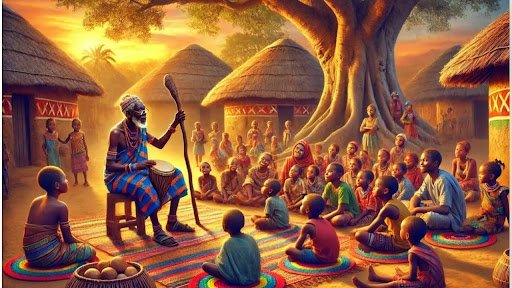Introduction
Across Africa, the art of storytelling has always been more than leisure. Folktales, proverbs, praise poetry, and epic narratives are cultural anchors that transmit wisdom, values, and history. In village squares and family courtyards, elders once gathered children at dusk to recount the adventures of Kwaku Ananse in Ghana, the hare in Southern African fables, or the deeds of kings sung by griots across the Sahel. These tales were not entertainment alone; they were moral compasses, communal memory, and social glue. Today, as short‑form video and algorithmic feeds reshape attention, the survival of oral tradition is in question. Will storytelling in Afrixa fade into nostalgia—or adapt and thrive?
Storytelling as Cultural Memory
In many African societies, oral literature served as a living library long before widespread literacy. Among the Mande, griots (jeliw) preserved genealogies and statecraft, advising rulers and mediating disputes through song. Among the Akan, proverbs condensed social ethics: “Wisdom is like a baobab tree; no one individual can embrace it.” Stories encoded environmental knowledge (when to plant, where to fish), social roles (how to treat elders and guests), and conflict resolution. Because transmission happened communally—face to face—the teller and the audience co‑created meaning, reinforcing identity across generations.
Disruptions and Revisions
Colonial schooling privileged European languages and literary canons, labeling indigenous narratives “folklore” and confining them to the margins. Globalization deepened this displacement as Hollywood and Western pop culture dominated imagination. Yet storytelling did not die; it revised itself. From Chinua Achebe and Ama Ata Aidoo to Ngũgĩ wa Thiong’o and Nadine Gordimer, writers re‑inscribed oral cadences into print. Nollywood’s melodramas and South African performance poetry borrowed proverb, call‑and‑response, and ancestral motifs, proving that tradition can be modern without becoming museum relics.
Digital Threat—or Opportunity?
Skeptics fear that TikTok skits and Instagram reels flatten complex tales into 30‑second punchlines. Context drops away; moral instruction becomes meme. But digital media also multiplies reach and archives what once lived only in memory. Podcasts that retell folktales in Twi, Yoruba, or Swahili reach diasporic children in London, Toronto, and Johannesburg. Community projects in Kenya and Ghana are digitizing proverbs and oral histories, while spoken‑word artists remix ancestral wisdom with contemporary themes—migration, gender, climate—drawing millions online. If stewardship is intentional, the medium expands, not erases, tradition.
Guardrails for Authenticity
Preservation should not mean freezing stories in amber. Cultures breathe. The task is to protect core values while welcoming new forms. That means crediting custodians, compensating source communities, and resisting extractive commercialization that strips stories of context. Schools can integrate local narratives into curricula; broadcasters can commission children’s programming based on regional folklore; tech platforms can host community‑run archives rather than bury them under ephemeral trends.
Why It Still Matters
Storytelling builds cultural confidence, counters homogenizing media, and strengthens social cohesion. In post‑conflict settings, narrative circles aid healing, allowing people to witness each other’s pain without courtroom adversarialism. Economically, story‑based industries—film, animation, gaming—convert heritage into jobs without depleting natural resources. A continent whose youth population is surging needs both roots and routes: stories provide both.
Conclusion
African storytelling is not dying; it is evolving. The question is not whether children gather around a flame or a phone, but whether what they hear nurtures memory, ethics, and imagination. With intentional curation, education, and investment, the continent’s oldest art will continue guiding its newest generations.
References
Finnegan, R. (2012). Oral Literature in Africa. Open Book Publishers.
Barber, K. (2018). A History of African Popular Culture. Cambridge University Press.
UNESCO (2021). Safeguarding Intangible Cultural Heritage in Africa.
BBC Africa (2023). “Digital Griots: Storytelling in the Age of Social Media.”








